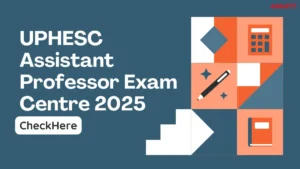Table of Contents
The Council of Scientific and Industrial Research – Junior Research Fellowship (CSIR JRF) is one of the most competitive exams for aspirants seeking research opportunities in the science domain in India. However, clearing the CSIR JRF Cut Off requires candidates to go the extra mile with a strategic approach, thorough subject knowledge, and effective time management.
Being a national-level exam, achieving the CSIR JRF cut off is undoubtedly challenging. But where all doors seem to close, Adda247 becomes the guiding force that equips you with the right strategy, expert guidance, and unwavering support to hit the bull’s eye on your very first attempt.
So, the question arises, how can candidates clear the CSIR JRF Cut Off? This article will serve as your ultimate guide, providing proven strategies, key preparation tips, and expert insights to help you achieve the required marks and secure a top position on the merit list.
How Can a Candidate Clear CSIR JRF Cut Off?
Clearing the CSIR JRF Cut Off is no easy feat, it demands a smart and focused approach to preparation. The first step is to thoroughly understand the exam pattern and syllabus, focusing on high-weightage topics that have historically been emphasized in the exam. Candidates should aim to master the core concepts of their respective subjects, ensuring a deep understanding of theoretical knowledge as well as practical application. Alongside this, developing strong problem-solving skills through consistent practice with mock tests and CSIR NET previous year papers is important.
CSIR NET JRF Syllabus
The CSIR NET JRF Syllabus is the foremost and most crucial aspect of your preparation strategy. Understanding the syllabus thoroughly is the foundation on which you can build your entire study plan. It serves as a roadmap to guide you through the vast array of topics, ensuring that you focus your efforts on the right areas. By knowing the syllabus inside out, you can avoid wasting time on irrelevant topics and concentrate on high-weightage sections that are more likely to appear in the exam.
Effective Strategies to Clear CSIR JRF Cut Off
To clear the CSIR JRF Cut Off, a holistic and focused approach is essential. It is not just about subject knowledge; candidates must integrate strategic study plans, time management, and consistent practice into their preparation. Below are the key strategies that can help candidates secure the required marks:
Strong Command Over Subject Fundamentals
The CSIR NET exam evaluates deep knowledge of five core subjects: Life Sciences, Chemical Sciences, Earth Sciences, Physical Sciences, and Mathematical Sciences. The key to success lies in building a strong command over the subject fundamentals.
- Focus on conceptual clarity rather than memorizing facts, as the exam tests your ability to understand and apply concepts.
- Study from NCERT books and standard reference materials to build a solid foundation.
- Practice previous years’ question papers to get familiar with question patterns and topic focus areas.
Focus on the Exam Pattern & Syllabus
Understanding the CSIR JRF exam pattern and syllabus is crucial for a targeted preparation strategy. The exam consists of three parts:
- Part A: General Aptitude (common for all subjects)
- Part B: Subject-related conceptual questions
- Part C: Analytical and application-based questions
Candidates should focus on the weightage distribution across these sections and prioritize high-scoring areas while preparing for each part of the exam.
Smart Time Management & Study Plan
A well-structured study plan is essential for comprehensive preparation.
- Allocate time to each subject based on your strengths and weaknesses.
- Regularly revise concepts to improve retention and understanding.
- Dedicate time for mock tests to enhance your time management skills under exam conditions.
- Maintain a daily schedule with proper breaks to avoid burnout and ensure consistency in your study routine.
Practice Previous Year Papers & Mock Tests
Regular practice is a key to cracking the exam.
- Solving previous years’ CSIR JRF papers helps in understanding the question patterns and the types of questions commonly asked.
- Taking mock tests regularly improves accuracy and speed, helping you identify your strengths and areas that need improvement.
- This practice also boosts your confidence and helps you manage exam anxiety on the day of the exam.
Effective Revision & Short Notes
As the exam approaches, effective revision is essential to retain what you’ve learned.
- Prepare concise notes for quick last-minute revision, especially for high-weightage topics.
- Use mnemonics, flowcharts, and diagrams to simplify complex concepts and improve memorization.
- Revise important topics multiple times to ensure they are well-ingrained in your memory.
Master General Aptitude Section
Part A of the exam tests logical reasoning, numerical ability, and data interpretation skills.
- Practice mathematical reasoning and numerical calculations regularly.
- Focus on graph-based questions and data interpretation problems.
- Work on verbal and non-verbal reasoning to strengthen this section, which can significantly boost your overall score.
| CSIR NET Exam Important Links | |
| CSIR NET Notification | CSIR NET Syllabus |
| CSIR NET Previous Year Paper | CSIR NET Eligibility |
| CSIR NET Preparation Tips | CSIR NET Cut-Off |
| CSIR NET Salary | CSIR NET Exam Centre |




 MP TET Varg 2 Exam Center List 2025, Dis...
MP TET Varg 2 Exam Center List 2025, Dis...
 UPHESC Assistant Professor General Aware...
UPHESC Assistant Professor General Aware...
 UPHESC Assistant Professor Exam Centre 2...
UPHESC Assistant Professor Exam Centre 2...














